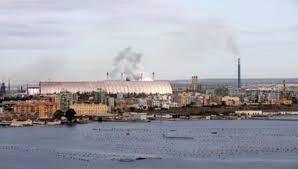Italy moves to put steelworks under supervision

Rome: The Italian government has launched the process of placing the struggling former Ilva steelworks under state supervision, seeking to secure production and thousands of jobs, a source close to the matter said Thursday.
A letter to this effect was sent Wednesday to the CEO of the site’s operator Acciaierie d’Italia, which is majority-owned by ArcelorMittal, the world’s second largest steelmaker, the source said.
CEO Lucia Morselli has 14 days to respond, the source said.
The government adopted a decree on Tuesday paving the way for the steelworks, one of Europe’s largest, to be placed under extraordinary administration.
It would involve appointing commissioners to manage the company and draw up a rescue plan, pending the arrival of a new investor.
Acciaierie d’Italia is heavily in debt and no longer able to pay many of its suppliers or utility bills, and is at risk of having its gas shut off at the site in the southern city of Taranto.
The site is currently run as a joint venture between ArcelorMittal, which holds 68 percent, and the Italian state, which has held 38 percent since 2021.
Rome considers the site a strategic asset, but it has long been troubled, dogged by a lack of cash and environmental scandals.
ArcelorMittal committed when it took over in 2018 to invest in “low carbon” steel and to increase production to eight million tonnes in 2025.
Instead, the site only produced 3.4 million tonnes of steel in 2022 and in 2023 production fell below three million tonnes.
ArcelorMittal had responded to a call for tenders after the site was last put into extraordinary administration in 2015, taking over the Ilva group and its 10,700 employees — including 8,200 in Taranto — at the end of 2018.
In crisis talks with Prime Minister Giorgia Meloni’s government last week, the company refused to invest any more money, according to Italian officials.
The Italian state had offered to finance a capital increase of 320 million euros, which would raise its stake from 38 percent to a controlling 66 percent, but this was rebuffed.





